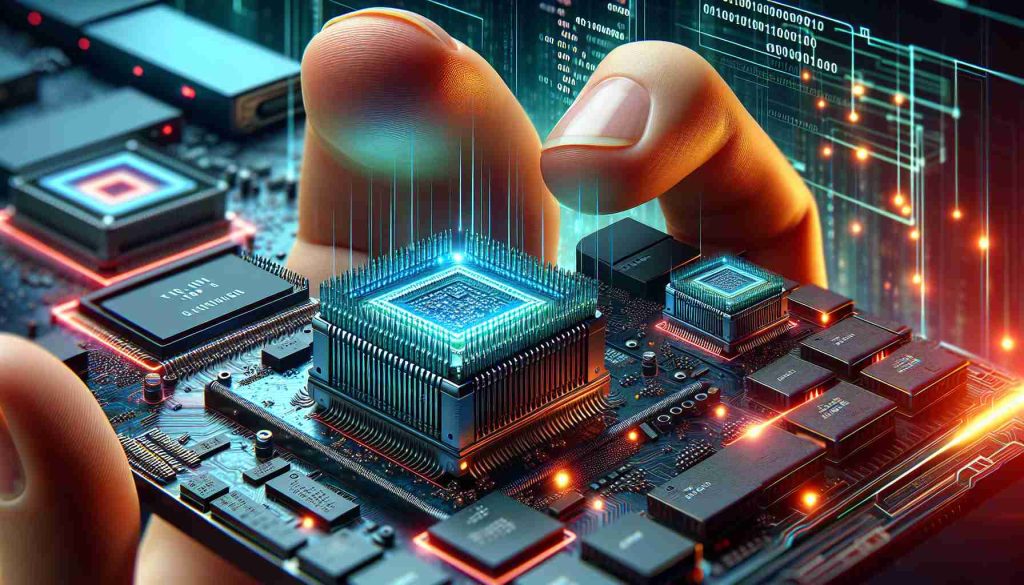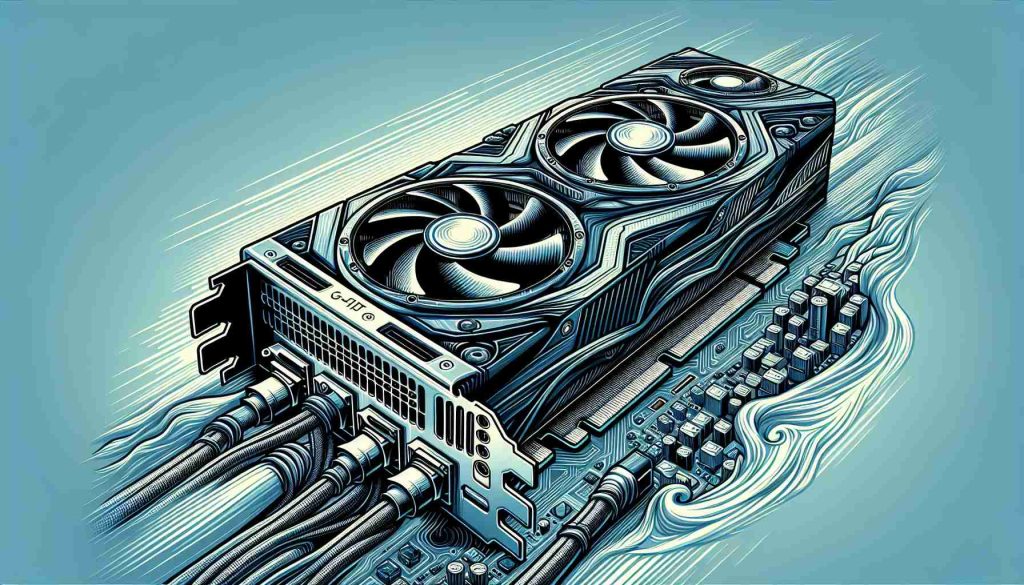In a remarkable turn of events, NVIDIA Corporation stunned the market with an impressive performance, exceeding all sales and profit forecasts in its latest quarterly report. Fueled by a soaring demand for artificial intelligence (AI) chips, the company is carving out a dominant position in the tech industry, making it a prime choice for investors.
NVIDIA’s financial results for the fiscal third quarter revealed a staggering 94% surge in revenue, reaching $35.1 billion compared to the previous year. Additionally, earnings per share climbed to $0.81, marking a 103% increase over the same period last year. These numbers greatly surpassed Wall Street projections, largely driven by stunning growth in their data center division.
This data center success is linked to high demand for NVIDIA’s Hopper chips. The advanced H200 chips are finding homes in major cloud services, pushing revenues from the data center to soar 112% to $30.8 billion. Yet, the excitement doesn’t stop there. NVIDIA’s CEO highlighted the enthusiastic anticipation for the next-generation Blackwell chips, which promise enhanced AI performance.
Internationally, NVIDIA’s technology is making waves, set to power AI supercomputers in both Japan and Taiwan. Given this explosive growth, NVIDIA’s stock value remains attractive, trading at a lower multiple than its industry peers, despite some initial price dips post-earnings hysteria.
Investors are eyeing NVIDIA, not only for its strong performance but also for its promising future in the AI revolution. With a solid long-term outlook and a robust net profit margin, NVIDIA is undeniably a compelling buy.
AI Revolution: How NVIDIA’s Dominance Shakes Up Global Tech Landscapes
In an extraordinary rise, NVIDIA’s remarkable performance shakes the very foundation of the global tech industry, casting ripples that reach far beyond financial markets. As the world marvels at its impressive revenue surge and pioneering technological advancements, it’s essential to unravel how these developments affect our societies, economies, and the future of AI technology.
Impacts on Communities and Countries
As NVIDIA pushes the boundaries of AI with its cutting-edge chips, this technological evolution transcends the confines of corporate profit statements. By powering AI-driven applications worldwide, NVIDIA is at the forefront of transforming healthcare, education, and transportation sectors in various countries. For instance, AI supercomputers in Japan and Taiwan stand to revolutionize scientific research, enabling breakthroughs in medicine and climate modeling.
Economic benefits are substantial, as businesses across industries leverage AI for operational efficiency and innovation. This tech boom could potentially increase job opportunities within AI and software development sectors, though questions remain regarding job displacement in more traditional fields due to automation. This demands robust re-skilling programs, especially in developing countries, to equip the workforce with future-ready skills.
Controversies and Debates
However, NVIDIA’s rapid ascent isn’t without controversies. The immense computational power of their chips rekindles debates around ethical AI usage, data privacy, and the carbon footprint of high-performance data centers. These issues raise crucial questions: How can we balance technological advancement with ethical constraints and environmental sustainability?
Privacy concerns are particularly pertinent as AI technologies create and process vast amounts of personal data. Ensuring stringent data protection and user privacy is critical, lest we face growing public mistrust and regulatory scrutiny.
Advantages and Disadvantages
On the plus side, NVIDIA’s leadership in AI technology fosters innovation and elevates global competitiveness, providing tools necessary for tackling some of the world’s most pressing challenges. Their advancements in chip technology promise improved efficiency and speed in AI processing, potentially catalyzing further growth in tech-driven sectors.
Conversely, such rapid tech assimilation can lead to significant economic divides. Developed nations might benefit more quickly from these advancements, further widening the gap with developing countries struggling to integrate such cutting-edge technologies. Additionally, increased dependence on AI could risk over-centralization of data power among a few major corporations, stifling competition and innovation in the long run.
Questions and Answers
What opportunities does NVIDIA’s growth provide consumers?
Consumers stand to benefit from faster, more responsive, and versatile AI applications, enhancing experiences from smart homes to mobile devices.
Will the concentration of power within a few tech giants become problematic?
Yes, it could lead to monopolistic behaviors, stifling competition, and innovation. Regulators must scrutinize mergers and acquisitions carefully to prevent market monopolization.
Conclusion
NVIDIA’s dominance in AI technology shines a spotlight on both opportunities and challenges. The world must navigate these complexities thoughtfully to harness the full potential of AI while ensuring ethical and equitable development. As we stand on the brink of a technological evolution, it’s crucial for global cooperation to address these pressing issues for a sustainable digital future.
For further exploration of AI technologies and their impacts, visit NVIDIA and IBM.






















